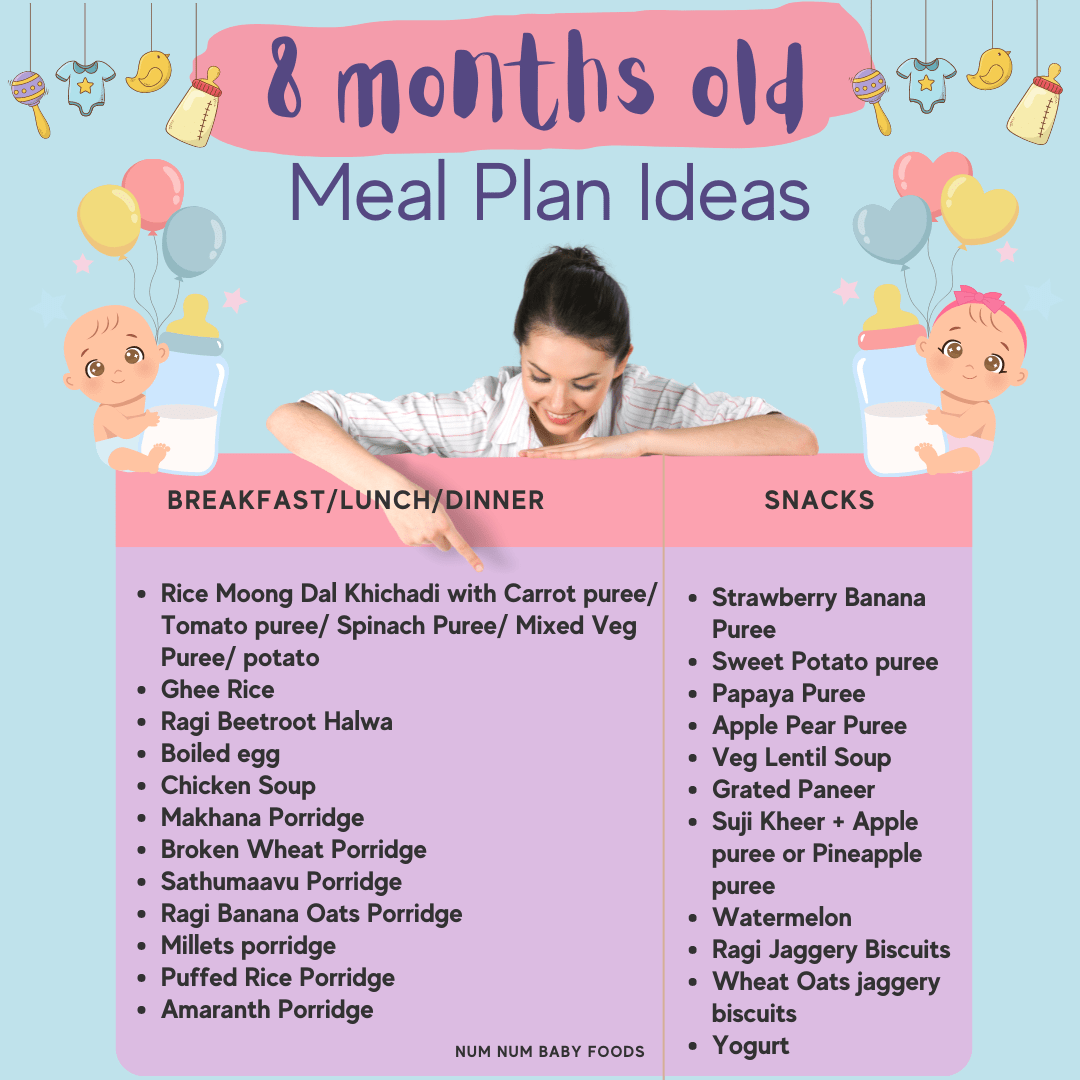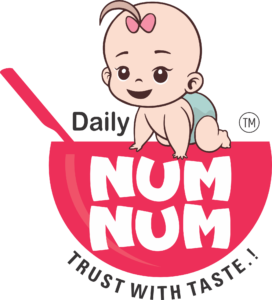Hello gorgeous!
Firstly, we would like you to give yourself a pat on your back for doing your best as a parent. Your baby has most likely tried solid foods for almost 2 months now. At 8 months, babies are very curious about their environment. They will be moving around more than wanting to eat. You might find yourself running around your baby at meal times, so be prepared to match up to your energy ball. It might also be wise, to start training your baby to use the high chair as a sign that it’s meal time. However, allow them to be free with playing around with their food as they are curious about everything around them.
So, what does 8-months meal planning look like?
At 8 months, your baby may have a tooth or two teeth. They have mastered the art of gulping down food and will slowly transition towards chewing what you give them. Teething also makes them more prone to putting things in their mouth and chewing them.
As your baby grown, their nutrient needs also grow. At 8 months, your baby is ready to absorb all vital proteins, vitamins, minerals and the continuous goodness of your milk or formula.
At 8 months, you can now include full meals 3 times a day and provide a small snack in the evening. Continue with breast-feeding or using formula.
What food can you feed your baby at 8-months?
The focus must be on providing wholesome meals. It must contain all the viral nutrients for an active baby’s development. Here are the following foods you can include:
Vegetables: At this point, you can now switch from purees to including small bite size portions of vegetables. They can be steamed or used in khichadi or soups. You can introduce them to a healthy mix of cauliflowers, pumpkin, broccoli, peas etc.
Fruits: Fruits are an excellent source of vital vitamins and minerals. They can now be given in bite size portions that your baby can easily chew on. Include apples, kiwi, strawberries, banana and so on. You can easily include these as snacks for your baby.
Vegetarian Protein: If your baby is on a vegetarian diet, you can include homemade paneer. In case your baby is lactose intolerant you can use soy milk to make tofu. Both of these are rich protein sources.
Non-Vegetarian Protein: Fish and chicken are healthy sources of protein for a baby. Do keep in mind that that you provide fresh meat and it should be cooked well before giving it to your baby.
Cheese: You can introduce your baby to small pieces of cheese that they can chew on. Cheese is a good source of protein. However, if your baby is allergic or lactose intolerant, you can skip this.
Yogurt: Homemade yogurt is rich in calcium and is a good source of good bacteria. You can give this to your baby in small quantities as a snack. Please skip this if your baby is allergic or lactose intolerant.
Eggs: If your baby consumes eggs without any allergies, you can provide this as a healthy breakfast option. It is full of proteins and essential vitamins. The best way is to boil an egg and break it into small pieces for your baby to eat it comfortably.
Millets and Grains: Rice, whole wheat, finger millets etc. are all loaded with fiber. Your baby’s health is most important and thus you should focus on buying unadulterated grains and millets. Certified organic sources are the best way to start with. You can include millets and grains as your baby’s main meals in the form of lunch and dinner. These could include millet chapattis, khichadi with vegetables and millets/rice. Porridges can also be made with millets for their breakfast. You can also include Num Num Baby’s healthy mix of organic millet and grains food as full meals for your baby.
Milk: Mother’s milk is very important and must be continued. Incase you are unable to breast-feed, use formula suggested by your doctor. If you are a working mom and cannot be present to breast-feed you baby at all times, we suggest pumping out milk and use it as and when needed.
By all means, refrain from feeding your baby with any animal or plant based milks. They are not suitable for babies below the age of one.
You can feed your baby around 500-600ml of milk divided into 5-6 feeds depending on your baby’s needs.
To make things easy for you, we have listed out a BONUS meal plan chart for your 8-month old baby. This will help you further ease into this process of learning about the best food suitable for early foods as well as assist you with meal planning.
BONUS: Meal Plan Chart for 8-month-old baby:

Sprouted Wheat Dates and Almonds
Bookmark this page to come to this in future.
This chart includes the most suitable Num Num Baby Foods for an 8-month old baby.
A summary of the full 8-month meal plan is inserted below. Save this page for inspiration.

Stay tuned for more meal plans. Share this with someone who will appreciate this and bookmark this post for future use.
Follow us on Instagram to not miss our daily updates and tips:
https://www.instagram.com/num_num_babyfood/
Num Num Baby Foods is an organic, vegan and preservative free company. We prepare our meals in clean and hygienic facility taking all safety measures in consideration. Our baby food is free of salt, sugar, MSGs and all other harmful ingredients. We are certified clean and safe baby food brand that is proven to increase weight and immunity in babies.
For hassle- free clean, healthy, nutritious and delicious baby food Shop here












